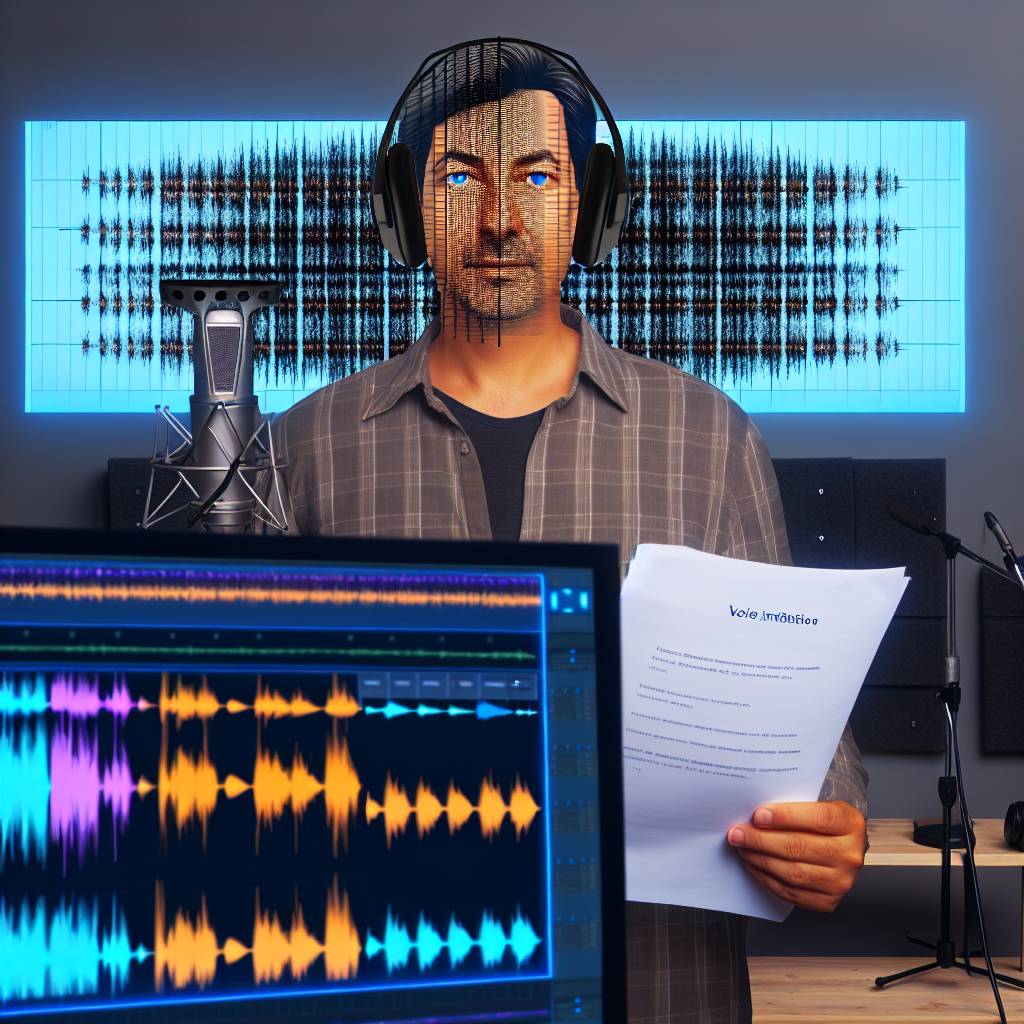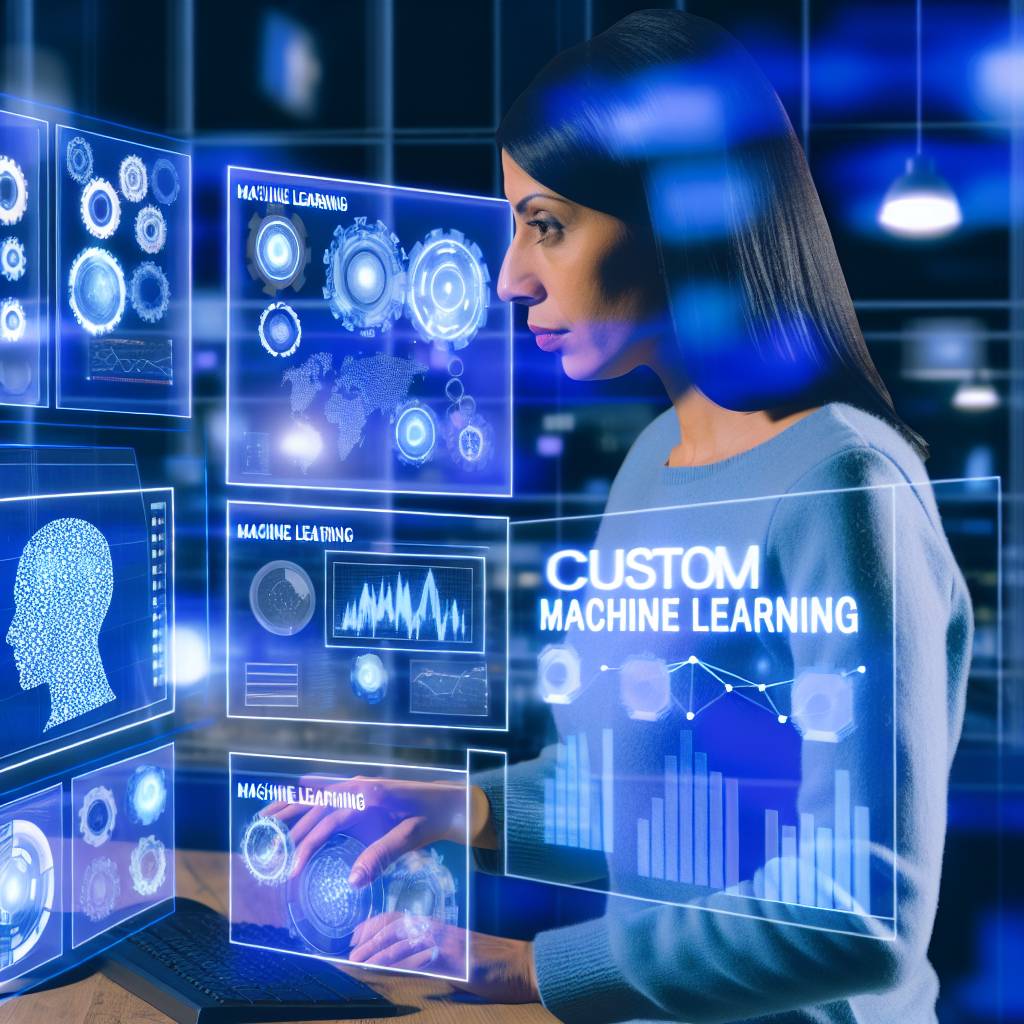
Speech recognition technology has become an essential part of our daily lives. From virtual assistants to automated call centers, we use it in various applications.
The increased demand for speech recognition technology has led to its integration with more advanced technologies, such as artificial intelligence (AI), to improve accuracy and efficiency.
In this blog post, we will explore the role of AI in speech recognition technology and the advantages and limitations of this technology.
Understanding Speech Recognition Technology
Speech recognition technology is the ability of a computer to recognize and transcribe human speech into text.
This technology has been around since the 1950s, with the first speech recognition system developed in the 1960s. These early systems used a rule-based approach to recognize speech, which involved programming the system to identify specific phonemes and their combinations. However, these systems were not accurate, and they could only recognize a limited set of words.
Over time, the development of statistical approaches improved the accuracy of speech recognition. These approaches used statistical models to recognize patterns in speech and improve recognition accuracy.
Today, the technology has advanced significantly and is used in various applications such as virtual assistants, automated call centers, and transcription services.
Importance of Speech Recognition Technology

The importance of speech recognition technology lies in its various applications across industries. In healthcare, it can be used to transcribe medical dictations and notes, improving the efficiency of medical professionals.
It can be used in education to increase accessibility for students who have speech and hearing problems. In the automotive industry, it can be used to improve the safety and user experience of vehicles.
As technology has advanced, the demand for speech recognition has also increased. With the development of virtual assistants like Siri and Alexa, it has become more accessible to the general public.
As a result, the market for it is expected to grow significantly in the coming years.
Related: 5 Innovative Uses of Speech Recognition
Traditional Speech Recognition Technology
Traditional speech recognition technology involves the use of rule-based and statistical approaches to recognize speech.
The rule-based approach involves programming the system to identify specific phonemes and their combinations. However, this approach is limited in its ability to recognize speech accurately, especially in the presence of background noise.
The statistical approach involves the use of statistical models to recognize patterns in speech and improve recognition accuracy. However, this approach also has limitations, such as the inability to recognize speech from multiple languages and dialects.
Examples of traditional speech recognition technology include early speech recognition systems and Automated Call Distribution (ACD) systems. These systems were not accurate and could only recognize a limited set of words.
Limitations of Traditional Speech Recognition Technology
Traditional speech recognition has several limitations, including inaccurate recognition of speech due to background noise and limited vocabulary recognition.
Inaccurate recognition of speech due to background noise can make it challenging for the system to understand what the speaker is saying. Limited vocabulary recognition means that the system can only recognize a limited set of words, which can limit the system’s usefulness in certain applications.
Artificial Intelligence in Speech Recognition
Artificial Intelligence uses algorithms and models to analyze and interpret speech. AI has revolutionized speech recognition technology.
Advantages of AI in Speech Recognition
The advantages of AI in speech recognition technology include improved accuracy and speed of speech recognition, the ability to recognize multiple languages and dialects, and the ability to learn and adapt to new speech patterns.
- Improved Accuracy and Speed
This is one of the significant advantages. AI can recognize speech patterns with greater accuracy, making it possible to transcribe speech accurately in real time. The use of AI has also made it possible to reduce the time required for speech recognition, making it more efficient. - Multilingual Recognition
Another advantage of AI in speech recognition is the ability to recognize multiple languages and dialects. AI can learn and adapt to new languages, making it possible to accurately transcribe speech in various languages. - Learning and Adaptation
AI in speech recognition can learn and adapt to new speech patterns. AI algorithms can analyze and interpret speech patterns, making recognizing different accents and dialects possible. This ability to learn and adapt makes AI in speech recognition technology more efficient and accurate.
Limitations of AI in Speech Recognition
Despite the numerous advantages of AI in speech recognition technology, there are also some limitations to this technology.
- Privacy Concerns
The use of AI in speech recognition technology means that users’ conversations are being recorded and analyzed. This can raise privacy concerns, especially if the data is being used for commercial purposes. - Complexity
AI algorithms can be complex, making it challenging to understand how they work. This complexity can make identifying errors and bugs in the algorithms difficult. - Accessibility
AI in speech recognition technology may not be accessible to everyone. Some individuals may not be able to use speech recognition due to the limitations of their speech or hearing impairments.
How AI Impacts Speech Recognition
AI-powered speech recognition uses deep learning algorithms to analyze patterns in speech and convert them into text. Here are some of the resulting impacts of the collaboration of the two technologies
Speech Recognition Accuracy
AI algorithms can analyze and interpret speech patterns, making recognizing different accents, dialects, and speech disorders possible. This technology has been used to create speech recognition software that can transcribe speech with over 95% accuracy. This has made speech recognition more efficient and reliable, saving time and improving communication.
Noise Reduction
Background noise can be a significant challenge to speech recognition. However, AI has improved the noise-reduction capabilities of the technology. AI algorithms can filter out background noise, allowing for more accurate speech recognition.
The use of AI has made it possible to transcribe speech accurately in noisy environments such as crowded coffee shops or busy streets.
Multilingual Support
AI-powered speech recognition can recognize multiple languages and dialects. AI algorithms can learn and adapt to new languages, making it possible to accurately transcribe speech in various languages. This has made speech recognition more accessible to people from different parts of the world, making it easier to communicate and transcribe speech in different languages.
Speaker Identification
AI has made it possible to identify individual speakers in a group conversation accurately. AI algorithms can recognize unique speech patterns and characteristics, allowing for accurate speaker identification. This has been used to create speech recognition software that can transcribe group conversations accurately, making it easier to understand what each speaker is saying.
Voice Assistance

Voice assistance is an application of speech recognition technology that has become increasingly popular. AI-powered virtual assistants such as Siri and Alexa use speech recognition to understand voice commands and respond to them. This has made it possible to control devices and perform various tasks using voice commands, making technology more accessible and convenient.
Ethics and Concerns
The use of AI in speech recognition technology has raised ethical concerns, including data privacy, bias, accessibility, and human interaction.
Data Privacy
The use of AI in speech recognition technology means that speech data is being collected and analyzed. This raises concerns about data privacy and how this data is being used.
There is a risk that this data could be used for unauthorized purposes or accessed by third parties without the user’s consent. To address these concerns, it is essential to have clear regulations and guidelines on how speech data is collected, stored, and used.
Bias in AI
There is a risk of bias in AI-powered speech recognition technology. This bias can be due to the data used to train the algorithms, which may be skewed toward a particular demographic or cultural group.
This can lead to inaccurate or discriminatory results. To address this, it is essential to ensure that the data used to train AI algorithms is diverse and representative of the population.
Accessibility Issues
AI-powered speech recognition technology may not be accessible to everyone, particularly those with speech disabilities or accents that are difficult for the technology to recognize.
This can lead to exclusion and discrimination, particularly in contexts such as education, employment, and healthcare. It is essential to ensure that speech recognition is designed to be accessible and inclusive, taking into account the needs of all users.
We Design & Develop Websites, Android & iOS Apps
Looking to transform your digital presence? We specialize in creating stunning websites and powerful mobile apps for Android and iOS. Let us bring your vision to life with innovative, tailored solutions!
Get Started TodayHuman Interaction
AI-powered speech recognition has the potential to reduce human interaction in various contexts, such as customer service and healthcare.
While this may lead to increased efficiency and cost savings, it may also lead to a loss of human connection and empathy, particularly in contexts where emotional support is crucial.
It is essential to strike a balance between the use of technology and human interaction to ensure that users receive the best possible service.
Conclusion
The use of AI has improved accuracy, speed, and the ability to recognize multiple languages and dialects. However, there are also limitations to this technology, such as privacy concerns, complexity, and accessibility.
Despite the limitations, AI in speech recognition technology has the potential to revolutionize various industries and fields. Continued advancements in AI will lead to further improvements in the accuracy and efficiency of speech recognition.
Before you go…
Hey, thank you for reading this blog to the end. I hope it was helpful. Let me tell you a little bit about Nicholas Idoko Technologies. We help businesses and companies build an online presence by developing web, mobile, desktop, and blockchain applications.
We also help aspiring software developers and programmers learn the skills they need to have a successful career. Take your first step to becoming a programming boss by joining our Learn To Code academy today!
Be sure to contact us if you need more information or have any questions! We are readily available.
Put Your Tech Company on the Map!
Get featured on Nicholas Idoko’s Blog for just $200. Showcase your business, boost credibility, and reach a growing audience eager for tech solutions.
Publish Now










